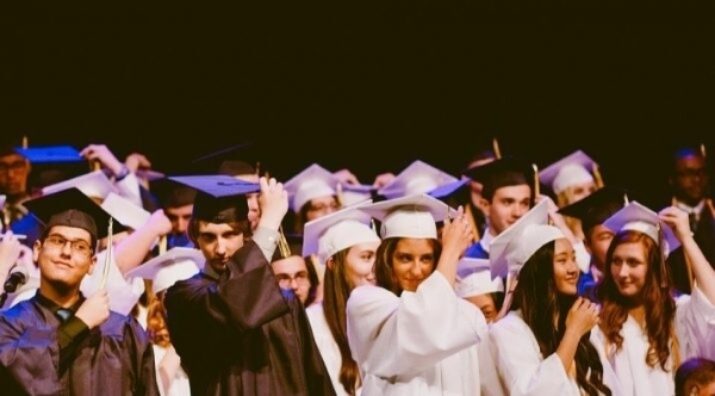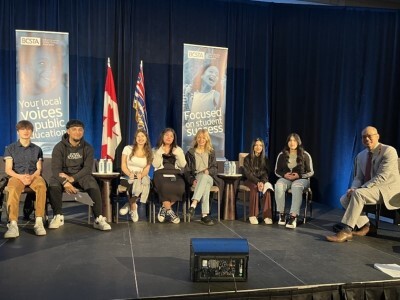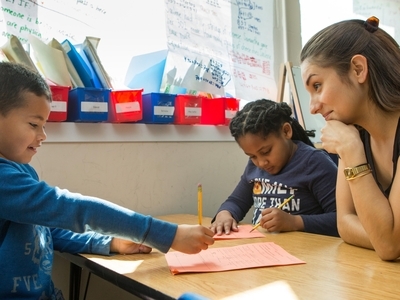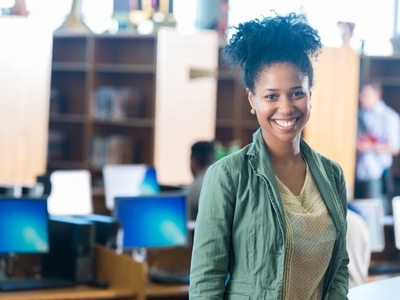Why It’s OK for 17 Year Olds to Not Have a Plan for College, Career, and Life
Topics

Next generation learning is all about everyone in the system—from students through teachers to policymakers—taking charge of their own learning, development, and work. That doesn’t happen by forcing change through mandates and compliance. It happens by creating the environment and the equity of opportunity for everyone in the system to do their best possible work.
Some Thoughts about School and Change for Students, Parents, and Teachers
A correspondence between Gary Chapin and Carisa Corrow, of Educating for Good.
Gary
I was talking to a friend at a music event some weeks ago. I asked him how “things” were going. He volunteered that his daughter’s apathy toward school and her future—she’s a junior in high school—was bothering him. He was worried about a possible failure to launch. Later, waiting in line for coffee, I talked to this friend’s wife—who is also a friend—and she was upset about the same thing, but moreso. She was on the verge of tears, feeling helpless in the face of her perceived prospects of her daughter thriving. The ever present fear of “Is my daughter going to end up living under a bridge?” working in tandem with “Am I a bad mother?”
Anything I could have said would have sounded trite and easy. “It’ll be okay?” It probably would be okay, but saying it doesn’t help. “She’ll be fine?” She probably will be. “She’s not going to live under a bridge?” Well, there are people who live under bridges. These are all appeals to reason, and the emotion my friend was feeling—genuine, profound fear that made her question her own worth as a person—was not going to bend to reason.
You still have teenagers. What do you think?
Carisa
My thoughts about this whole school thing have changed over time. My oldest is a September baby, a Virgo like me. He’s really smart, and I was so excited to get him to kindergarten, even if it was just half-day. In high school I had a plan for him to take all the dual enrolment courses available. He’d graduate at 17 with an associate’s degree, or close to it and have a master’s degree by 21. Then off to a great life.
And, a pandemic got in the way.
He took online college courses his senior year in high school, which got him ahead with college credits, but he lost out on some real social opportunities. I mourn the loss of a theater production his senior year. He shined as Seymour and Shrek, and he just wasn’t that interested in getting involved in a virtual format.
He took a gap year after graduation to work. Online school was painful, and he wasn’t excited to jump back in. After a year of working retail, he learned that’s not the life for him. I knew it would happen … eventually. He just needed to be allowed to be lost for a bit, and lucky for him, he has the privilege to take time to figure it out.
And that privilege is not just about resources, it’s also about perspective. Ours as parents, and his. Is there such a thing as a privilege of perspective? And, if there is, how is it used for Good? I don't know, and I think it’s worth exploring.
I don’t want to diminish your friends’ feelings, AND I’m about to say some things that might feel harsh.
Success and happiness are not dependent on college, even in 2023.
The quality of parenting cannot always be understood by the free will choices of our kids. That goes for “good” parents and “bad” ones alike, and even for schools and teachers. It’s OK if a 17 year old doesn’t know their path, especially after an existential crisis like a pandemic.
Do you think your friends’ daughter is afraid of something, or just apathetic, or something else?
Gary
I love that you call it “this whole school thing.” I frequently quote Michael Fullan’s maxim when talking to folks trying to make change:
“People don’t fear change. People fear loss.”
This insight changed everything for me. If someone’s just “afraid of change” that means they’re kind of a Luddite, a stick in the mud, then you don’t really have to engage them in the change process. You only need to find a way to get around them.
But if someone is afraid of loss—well, everyone is afraid of loss. It’s a universal human constant. Recognizing this in someone gives you an opportunity to respond to them with compassion, not just political maneuvering and tactics. Acting out of compassion not only improves their day, but yours too.
It can be easy to dismiss those who oppose the change that we are advocating for. People tend to fall into camps and get adversarial. We plan strategies. After a rough discussion we have “post mortems.” We are upheld by moral certitude and urgency—it's for the kids. We feel it’s obvious that we’re right! Isn’t it? But the other side … what’s wrong with them? Can’t they see it? Did we not explain it well enough?
We did, but they are afraid of losing something important to them. Just like my friends and their daughter.
Carisa
I don't know to what degree I agree with Fullan’s change quote. It might be more a fear of not knowing that holds people back more than a fear of loss. Then you’ll say, “A fear of not knowing what they are going to lose.”
I think it might be more than that.
In 2018, I remember talking with a small group at a local Showing Up for Racial Justice meeting about how public education was the avenue into and out of our community’s problems. So, if we were going to address anything in our city, we had to reflect on the status quo structures of the schools, including standardized tests. But getting most folks to ditch the test is really difficult, even some of my "progressive" education friends didn’t dare opt their kids out of state tests this year, even after the pandemic.
A pandemic! The biggest collective existential crisis of the last one hundred years. I was sure opt out campaigns would be all the rage this year. I was wrong.
Five years later, “progressive” folks are fighting really hard at our state house to hold onto the status quo with state testing, even though intellectually they know it’s not good for New Hampshire or our future. Talk to someone about school funding or school quality, whatever side of the aisle they are on, standardized tests is the measure. The mental gymnastics is exhausting.
Gary
Educational change is so fraught because we all have feelings—not just opinions—about how education ought to be. These feelings are based on our experiences, wounds, values, and ideals. There isn’t one thought you could have about school that isn’t tangled up with a powerful emotion. This applies to all of us, not just parents. Teachers, students, administrators, staff—we’ve all invested emotional power into our idea of school.
But people leading change usually dismiss these emotions. We dismiss parent concerns frequently as the complaints of those who don’t understand, or Luddites not wanting progress, or privileged parents of high performing kids protecting their status.
Carisa
I can see a future where public schools are radical versions of their current state, I just don’t think others can, and that’s the real fear of change—not knowing, not being able to see.
I talked to a first year teacher—a second career teacher—the other day in a school that’s about to undergo some big changes next year. Each teacher will co-facilitate at least one class with a peer. His apprehension is not that it’s changing. He doesn’t know much different. He just can’t conjure up the feelings, the sounds, the sights of the new structure.
Some students are also struggling with the unknown. They’re certainly not afraid of losing boring coursework that has no meaning to them or afraid of losing 65 minutes a day with a teacher who lectures from the front of the room for the entire class. But, they can’t see another way, and that’s scary.
So, maybe, with your friends’ daughter, it’s not a failure to launch but a delayed launch. Maybe she just needs to see the possibilities. Or maybe, it’s something else entirely.
Image at top by Caleb Woods on Unsplash.




